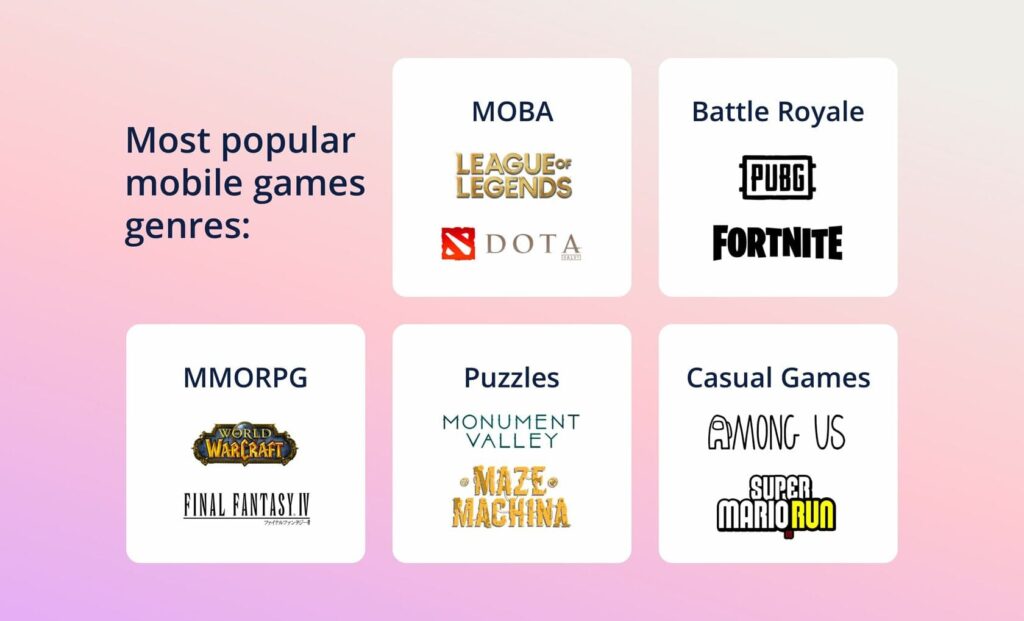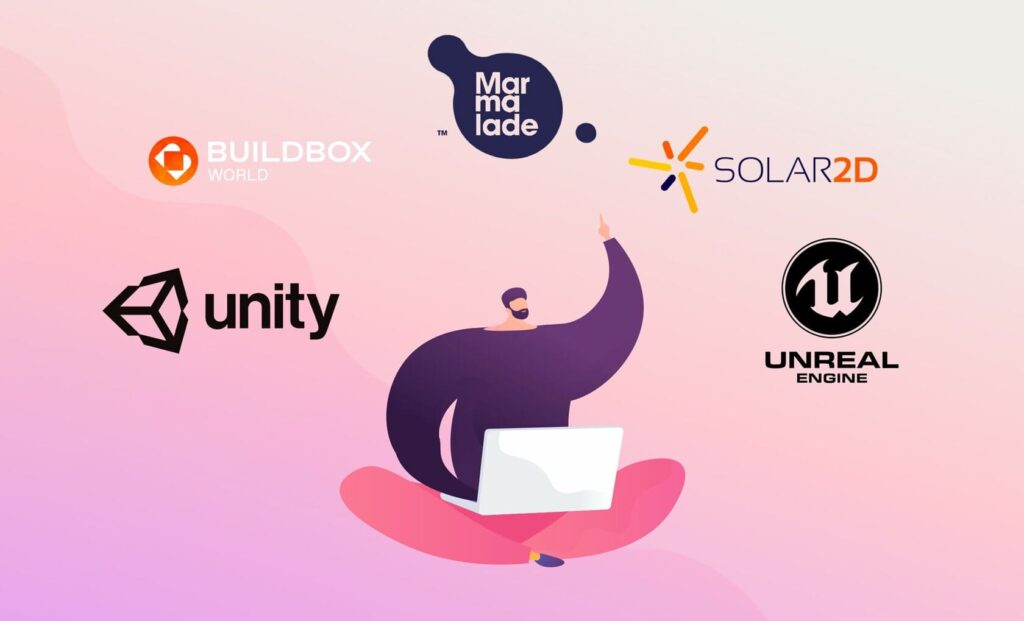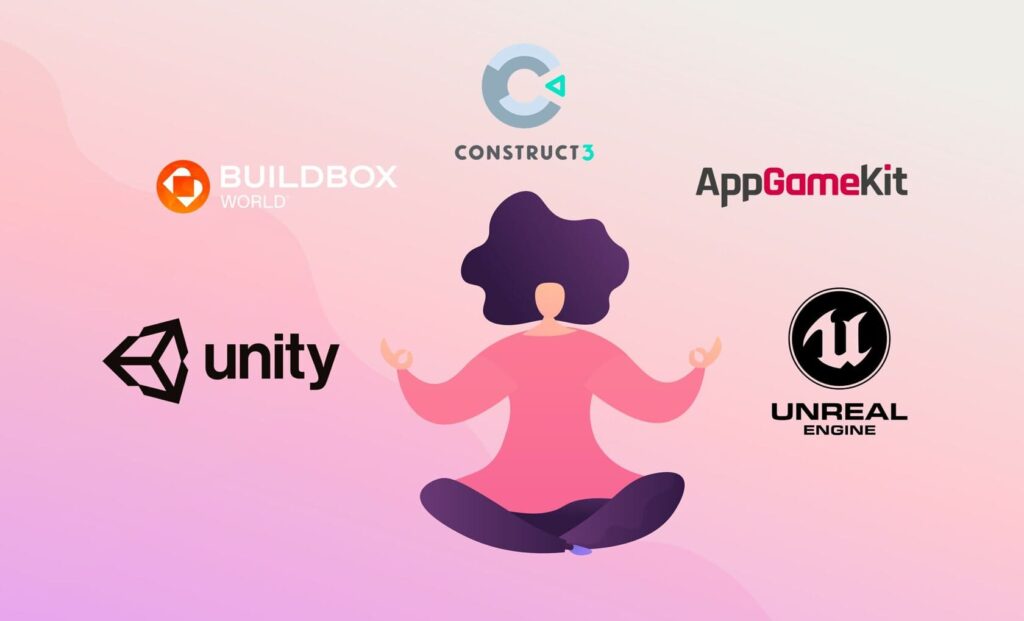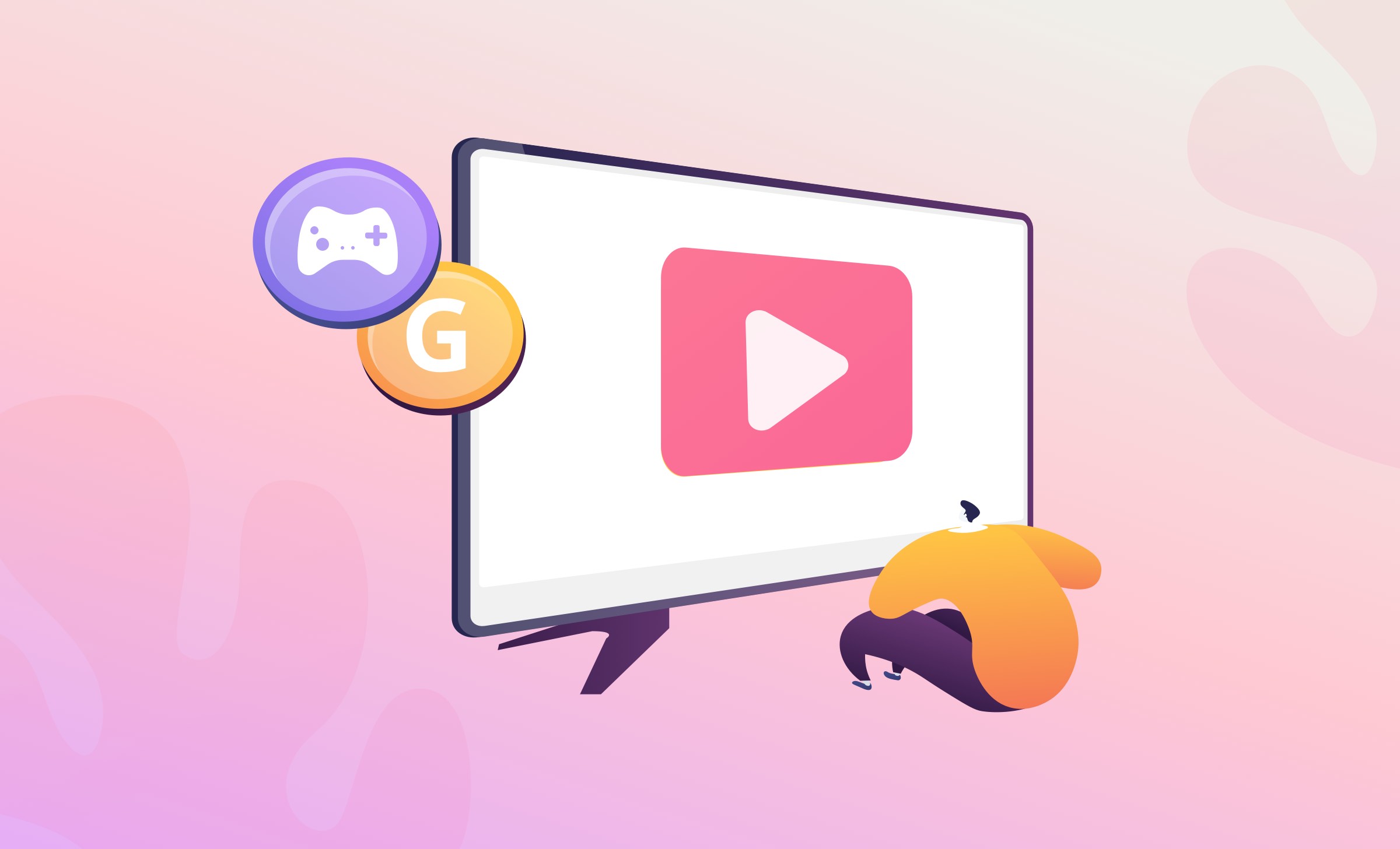A platform or engine is the backbone of any mobile or computer game apps development. Based on such software, all the product’s main components are built. They allow you to create unique projects with multifaceted worlds, add-ons for games, etc. Engines declare aspects such as game logic, physics, gameplay characteristics, and object rendering. On top of all this, other elements are superimposed to make projects look different, even if they were built on the same platform.
As the programming industry develops, so do the ecosystems on which you can create games and apps. Instead of writing all the details from scratch, you can turn to an advanced engine to save time and resources. Of course, all such platforms have certain limitations and, for example, are not intended for use in radically different genres (like RPGs and platformers). However, they are still quite flexible and allow developers to create virtual worlds without major financial investments.
Read our article if you want to understand better what engines and platforms are, how they are involved in game apps development, and find out which ones we consider the best.
What Is a Games Engine?
In simple words, gaming engines for Android and iOS are the basis of games, the “skeleton” on which various details are built up during the game apps development process. However, there are much more complex aspects behind such a simple definition. In fact, one such ecosystem combines several software systems responsible for various actions within one project. It can be:
- graphic visualization;
- sound design;
- characters’ and NPCs’ movements;
- physical effects;
- logic and scripts, and much more.
All this makes engines and platforms one of the most difficult programs to write. The system should be perfectly “calibrated” to give users the best possible experience.
If you’re a keen enough gamer or developer, when comparing two projects made on the same platform, you may notice some similarities in basic things, such as how the main characters aim their weapons or go down the mountains. At the same time, an inexperienced viewer will probably not notice them since such things are usually “veiled” with a different design so that the resemblance is not striking at all. This is how unique game worlds are created.
Using an engine or platform to develop mobile apps has many benefits for publishers and developer companies:
- convenient tools with extensive libraries remove the need to write basic code;
- thanks to it, developers have the opportunity to focus on design, graphics, story, and mechanics;
- advanced engines allow you to create multi-platform products;
- such software can be reused to develop other titles;
- all this significantly saves time, money, and human resources;
- as a rule, ready-made solutions have user communities where you can be advised on how to utilize specific tools;
- you can see the result of the work of other developers on a particular engine or platform and understand how it suits you.
The best mobile game engines provide programmers with flexible and integrated environments to accelerate production, which is essential in an increasingly competitive industry. Now it is important not only to build a quality product but also to do it quickly enough, ahead of rivals.
Besides, it is vital to know how to present your game in the most profitable way on the main app stores. We know everything about it and share our knowledge and experience with novice developers in our Blog and Academy. If you want to upgrade your visuals and get your app to the top of the best, check out our experts’ article “App Store Tips for App and Mobile Game Icon, Screenshots, and Videos.” Remember that optimization and marketing play crucial roles in increasing your visibility and discoverability.
How Are Mobile Game Apps Development?
The industry of making games for portable devices has been one of the most profitable for many years and continues to develop. According to Sensor Tower statistics for 2021, game downloads accounted for around 78% of revenue for Play Market and over 61% for App Store. Mobile cross-platform game apps development is a complex and multi-stage process, the details of which may vary depending on the specific approach and project. A basic plan may consist of the following points.
- Idea and strategy
Genius ideas for game apps development are the starting point for your top product. In today’s environment, surprising users with something special can be tricky. That is why it is important to offer them something they have not tried yet. You need to analyze the market, competitor activity, and target audience at this stage. When starting a project, you should remember who it is for and what tasks it solves. - Genre and category
A quality idea can be presented well in any genre. Decide how you would like to see your final product. The most popular directions at the moment are:
- MOBA;
- battle royale;
- MMORPG;
- puzzles;
- casual games.

The “category” usually refers to your product’s complexity. For example, most of the games in app stores are occupied by projects from the midcore section. It is the golden mean between extra simple and highly complex gameplays. They require certain skills from players, but at the same time, they are designed for a fairly wide audience. A popular representative of this category is Clash of Clans.
Hyper casual games are the simplest projects that help you “kill time.” You do not need to puzzle over the quests, and each session takes only a few minutes. An example of this direction is Crossy Road and Helix Jump. Hardcore games, as you understand, are designed for experienced players, enthusiasts, and geeks. The Honor of Kings and Infinity Blades are bright representatives of this category.
- Platform and engine
With 2D or 3D mobile game apps development, you should decide on the operating system. You can create an exclusive for iOS or Android or make a cross-platform product that will work on both systems. The choice of an engine largely depends on the decisions on the previous points. Below we will look at the most popular game apps development environments. We will only mention that you can use ready-made solutions or create your own if you know how to build a game engine.
- Design and graphics
UX design for mobile apps is a much more complex process than designing, for example, applications. It is vital to consider many aspects, such as the location, the history of the characters and the world, and most importantly, remember that the charm of games lies in the details. At the same time, you should strike a balance between high-quality graphics and performance. The latter will affect which devices users can run your project on.
- Testing and monetization
Before launch, your game should be thoroughly tested on all platforms and devices for which it was developed. Be sure to think over and choose a monetization model: freemium, best in-app purchases, subscription, ads, etc. The first method now dominates app stores.
The process of building a game for Android and iOS is not finished on the last point. You also need to think over your marketing strategy, make a quality ASO, and regularly improve your product after launch.
Best Platforms to Develop Mobile Apps
The choice of game apps development environment for games is essential for performance and the final result. In this section, we will not go deep into the comparison of game engines; we will only tell you about the most commonly used solutions. The choice of a particular item is very individual. You can compare the listed options yourself and choose the one that suits you best.
Top game engines for iOS
As modern statistics show, iOS is slightly behind Android. The total number of devices with this operating system is less. Although the difference varies by region, in general, this trend is common in all countries. At the same time, the purchasing power of Apple device owners is usually higher, which means they spend more money on buying mobile products.
The best gaming engine for beginners in iOS game apps development is SpriteKit. It has been designed exclusively for this system since Apple created it. It is a user-friendly platform with an extensive internal library ideal for all iOS devices. Such top iPhone games as Trestle, Squashy Bug, and Accelebot were created on this engine. Other popular ecosystems include:
- Unity;
- Unreal Engine;
- Solar 2D;
- Marmalade SDK;
- Buildbox.

When developing products for this system, you have a limited number of devices and iOS versions, which simplifies the process. However, you need to have rather expensive equipment. Also, publication on App Store takes quite a long since moderation is done manually.
Best gaming engine for Android
The target audience of Android developers is larger since there are more users of devices with this system in the world than iOS. At the same time, according to statistics, they prefer to use free or shareware products since their purchasing power is somewhat lower.
The best 2D mobile game engine is Solar 2D. As it is quite easy to learn, it is suitable for beginners. To work with it, you will need the Lua language, but you’ll be able to master it real quick. It was used to create such best Android games as Match 3 Space RPG, Flappy Bird, and Corona Cannon. Other engines suitable for Android product development are as follows:
- Unity;
- Unreal Engine;
- Buildbox;
- AppGameKit;
- Construct 3.

Creating games for this operating system is complicated because there are many models and OS versions, which can cause uneven work on different devices. But to start such development, you just need to have any PC or laptop, and the publication of the final product on Play Market occurs almost instantly since this process is automated.
Top Engines for Perfect User Experience
The modern gaming industry offers developers a huge variety of engines, tools, and environments to create the perfect first product. For beginners, it is better to start with the use of engines, as they simplify the whole process and help understand better how game apps development is generally built. After gaining certain skills, you can move on to writing your own solution and creating games from scratch.
When choosing a suitable engine, pay attention to the following parameters:
- supported platforms;
- specialization;
- complexity of use;
- programming language;
- popularity and communities;
- user reviews;
- released projects.
As you can see from our engine lists, most of them are universal and suitable for writing games for both iOS and Android. Choose the one that best suits you according to the criteria described above.
After creating a dream product, it is essential to tell the world about it correctly. Asolytics has you covered. We will help you optimize your app store assets and make your game visible to the target audience.




